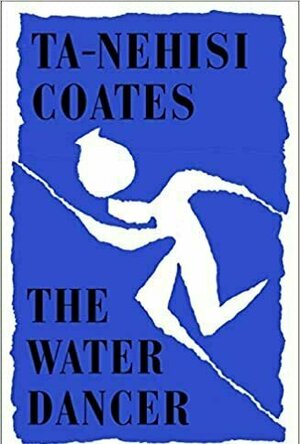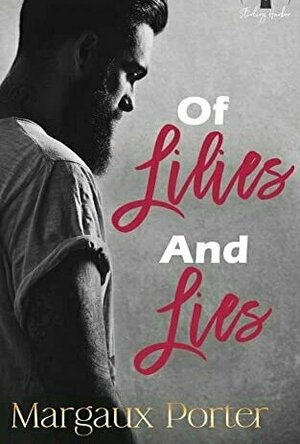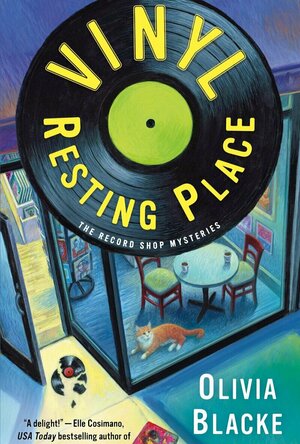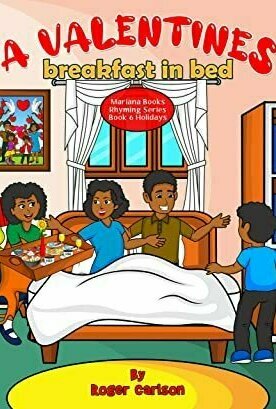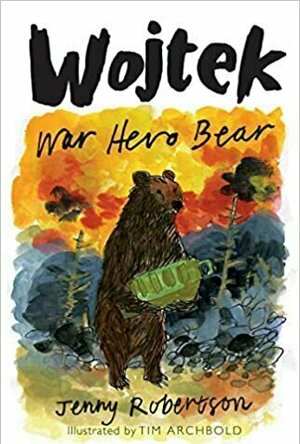Search
Search results
ClareR (6054 KP) rated The Water Dancer in Books
Feb 9, 2023
The Water Dancer byTa-Nehisi Coates is a book of contradictions: a book beautifully written about a shameful time in history.
Hiram is taken away from his mother as a child when she is sold to another owner. When his feats of memory are recognised by his owner/ father, he is taken in to the big house and educated. As he gets older, all Hiram wants is to be free to choose his own life and to have his own family.
When Hiram runs away, he eventually finds himself involved with the Underground Railway. And that is where he learns to control his ability to “conduct” himself to different places to help people.
I love magical realism and the way it makes us think about the way the world works in reality, as opposed to how we’d all like it to work. Hiram’s ability to conduct himself immediately to another place takes all the risk out of capture, the miles of struggle and needing to stay hidden. Of course, Hiram only gets to this stage after he experiences the trauma and inhumanity of being caught by the slave catchers himself.
I thoroughly enjoyed this - I listened on audiobook, and the narrator Joe Morton was amazing. Especially his singing - his voice just brought the characters to life.
A fabulous novel.
Hiram is taken away from his mother as a child when she is sold to another owner. When his feats of memory are recognised by his owner/ father, he is taken in to the big house and educated. As he gets older, all Hiram wants is to be free to choose his own life and to have his own family.
When Hiram runs away, he eventually finds himself involved with the Underground Railway. And that is where he learns to control his ability to “conduct” himself to different places to help people.
I love magical realism and the way it makes us think about the way the world works in reality, as opposed to how we’d all like it to work. Hiram’s ability to conduct himself immediately to another place takes all the risk out of capture, the miles of struggle and needing to stay hidden. Of course, Hiram only gets to this stage after he experiences the trauma and inhumanity of being caught by the slave catchers himself.
I thoroughly enjoyed this - I listened on audiobook, and the narrator Joe Morton was amazing. Especially his singing - his voice just brought the characters to life.
A fabulous novel.
Bethr1986 (305 KP) rated Of Lilies and Lies (Stirling Harbor #1) in Books
Apr 9, 2023
Independent Reviewer for Archaeolibrarian - I Dig Good Books!
Kit is trying to piece her life back together after her abusive husband dies. She has been trying to put her life back together for the past 3 years but there's just too much history. She thinks the best thing to do is move back to her childhood hometown and make amends with her family, on her way home she runs into a handsome stranger Greer, but that is the last she will ever see of him surely!?
Wow! Honestly wow. This book is thrilling and captivating from the start. I enjoy the way Margaux has written from both Kit and Greer's perspectives, it gives you an insight into what they're both thinking and feeling. There is a lot to process in the story abuse, rape, violence, and trauma which brings a lot of emotion with it. I felt that from both parties and found myself having a few 'Ahh, bless them' moments as I was that invested in a positive outcome for them both. The ending of the book is fantastic as well as extremely well written. I don't want to say too much but my heart was in my mouth! I can't praise Margaux enough and would gladly read another book by this author.
A 5/5 recommended read
Kit is trying to piece her life back together after her abusive husband dies. She has been trying to put her life back together for the past 3 years but there's just too much history. She thinks the best thing to do is move back to her childhood hometown and make amends with her family, on her way home she runs into a handsome stranger Greer, but that is the last she will ever see of him surely!?
Wow! Honestly wow. This book is thrilling and captivating from the start. I enjoy the way Margaux has written from both Kit and Greer's perspectives, it gives you an insight into what they're both thinking and feeling. There is a lot to process in the story abuse, rape, violence, and trauma which brings a lot of emotion with it. I felt that from both parties and found myself having a few 'Ahh, bless them' moments as I was that invested in a positive outcome for them both. The ending of the book is fantastic as well as extremely well written. I don't want to say too much but my heart was in my mouth! I can't praise Margaux enough and would gladly read another book by this author.
A 5/5 recommended read
Mark @ Carstairs Considers (2466 KP) rated Vinyl Resting Place in Books
Mar 16, 2023 (Updated Mar 16, 2023)
Vinyl May Not be Dead, but Somebody Is
Juni Jessup and her sisters have opened Sip and Spin Records, a combined record store and coffee shop, on the site of the one that their family used to own before records stopped selling. The night before their official opening, they are throwing a party, but things turn tragic afterward when Juni finds a dead body in their storage closet. When their uncle is arrested for the crime, Juni and her sisters don’t hesitate to put their shop up to get him released on bail. But then he vanishes. Can the three of them figure out what is really going on in time to save their shop?
I really enjoyed this debut. The plot takes off in a couple of different directions, and I enjoyed that creativity. I did feel it slowed down a little in the middle, but it picked up again for a fantastic climax. You can feel the history between Juni and her sisters, and I loved their relationships. There are other fun series regulars, and the suspects fit into the book perfectly. I also enjoyed the humor running through the book. The setting, a small town just outside of Austin, Texas, was charming as well. I can’t wait to revisit Juni and the rest of the characters again soon.
I really enjoyed this debut. The plot takes off in a couple of different directions, and I enjoyed that creativity. I did feel it slowed down a little in the middle, but it picked up again for a fantastic climax. You can feel the history between Juni and her sisters, and I loved their relationships. There are other fun series regulars, and the suspects fit into the book perfectly. I also enjoyed the humor running through the book. The setting, a small town just outside of Austin, Texas, was charming as well. I can’t wait to revisit Juni and the rest of the characters again soon.
Lindsay (1786 KP) rated A Valentine's Breakfast in Bed (Mariana Books Rhyming #6) in Books
Feb 17, 2022
A Valentine's Breakfast in bed is a sweet story. It shows how the kids love their parents by making breakfast in bed on this special day. This book is excellent for showing love and showing that Valentine's day is for all types of love. Children will learn that Valentine's day is not just for the couple but for all those that we love.
This story is well done. The family in this story is a different one and different ethnicity. I enjoyed that as the author wants to show diversity. This one is good for this book and still has a black history month relation. I do not know if that stood to be that. I love that he has done so. It can stand shown that way and what this memorable holiday in the middle of February is all about.
The pictures are colorful. The story is mainly set on the two children making breakfast for their parents for this special day. They show it by making a few breakfast food for them. How will they enjoy the day with their mom and dad?
This book also will help children learn rhyming and some kindness and love. Parents will enjoy having this book along with the rest of the series on their bookshelves. They can read along with their children.
This story is well done. The family in this story is a different one and different ethnicity. I enjoyed that as the author wants to show diversity. This one is good for this book and still has a black history month relation. I do not know if that stood to be that. I love that he has done so. It can stand shown that way and what this memorable holiday in the middle of February is all about.
The pictures are colorful. The story is mainly set on the two children making breakfast for their parents for this special day. They show it by making a few breakfast food for them. How will they enjoy the day with their mom and dad?
This book also will help children learn rhyming and some kindness and love. Parents will enjoy having this book along with the rest of the series on their bookshelves. They can read along with their children.
Lyndsey Gollogly (2893 KP) rated The Light at the End of the Day in Books
Jan 14, 2024
9 of 220
Book
The Light at the End of the Day
By Eleanor Wasserberg
⭐️⭐️
When Jozef is commissioned to paint a portrait of the younger daughter of Kraków’s grand Oderfeldt family, it is only his desperate need for money that drives him to accept. He has no wish to indulge a pampered child-princess or her haughty, condescending parents – and almost doesn’t notice Alicia’s bookish older sister, Karolina.
But when he is ushered by a servant into their house on Kraków’s fashionable Bernadyńska street in the winter of 1937, he has no inkling of the way his life will become entangled with the Oderfeldts'. Or of the impact that the German invasion will have upon them all.
As Poland is engulfed by war, and Jozef’s painting is caught up in the tides of history, Alicia, Karolina and their parents are forced to flee – their Jewish identity transformed into something dangerous, and their comfortable lives overturned …
I struggled with this book in several places. The story was so sad and I can’t even begin to imagine living like this but the book was a tough read I’m not sure why either which is so frustrating. I couldn’t bring my to like these characters at all under the storyline the characters were hard to like.
Book
The Light at the End of the Day
By Eleanor Wasserberg
⭐️⭐️
When Jozef is commissioned to paint a portrait of the younger daughter of Kraków’s grand Oderfeldt family, it is only his desperate need for money that drives him to accept. He has no wish to indulge a pampered child-princess or her haughty, condescending parents – and almost doesn’t notice Alicia’s bookish older sister, Karolina.
But when he is ushered by a servant into their house on Kraków’s fashionable Bernadyńska street in the winter of 1937, he has no inkling of the way his life will become entangled with the Oderfeldts'. Or of the impact that the German invasion will have upon them all.
As Poland is engulfed by war, and Jozef’s painting is caught up in the tides of history, Alicia, Karolina and their parents are forced to flee – their Jewish identity transformed into something dangerous, and their comfortable lives overturned …
I struggled with this book in several places. The story was so sad and I can’t even begin to imagine living like this but the book was a tough read I’m not sure why either which is so frustrating. I couldn’t bring my to like these characters at all under the storyline the characters were hard to like.
ClareR (6054 KP) rated The Glassmaker in Books
Sep 2, 2025
This imaginative story begins in Murano, 1486 at the height of the Italian Renaissance, and ends in the modern day - and all with the same characters. And the thing is, never at any point did I feel that it was far fetched.
Murano comes across as a magical place, both in its ability to make beautiful pieces of art from glass, and also its ability to keep those who live there in a kind of time warp or stasis. If you live on Murano, you don’t age.
Such is the case with the main character, Orsola Rosso.
We join her family when she is 9 years old and her father dies suddenly. Her brother struggles with the responsibility and skills needed to run the business - that is until a rival matriarch teaches the Rosso women (via Orsola) how to make glass beads.
I loved how real people from history were brought into the story (Casanova and Josephine Bonaparte, amongst others), and how when time jumped hundreds of years, Orsola only aged a few in that time. We see how Italy changes over time, how it modernises and how climate change endangers both lives and livelihoods.
The story and characters felt as vibrant as the glass beads. This was such a refreshing, different read. Just outstanding 🤷🏼♀️
Murano comes across as a magical place, both in its ability to make beautiful pieces of art from glass, and also its ability to keep those who live there in a kind of time warp or stasis. If you live on Murano, you don’t age.
Such is the case with the main character, Orsola Rosso.
We join her family when she is 9 years old and her father dies suddenly. Her brother struggles with the responsibility and skills needed to run the business - that is until a rival matriarch teaches the Rosso women (via Orsola) how to make glass beads.
I loved how real people from history were brought into the story (Casanova and Josephine Bonaparte, amongst others), and how when time jumped hundreds of years, Orsola only aged a few in that time. We see how Italy changes over time, how it modernises and how climate change endangers both lives and livelihoods.
The story and characters felt as vibrant as the glass beads. This was such a refreshing, different read. Just outstanding 🤷🏼♀️

The Better Angels of Our Nature: A History of Violence and Humanity
Book
-Shortlisted for the Samuel Johnson Prize 2012 This acclaimed book by Steven Pinker, author of The...
BookInspector (124 KP) rated Wojtek: War Hero Bear in Books
Sep 24, 2020
More reviews at https://bbookinspector.wordpress.com
Well, I think this book is classified as a children’s read, but I noticed, that you should have pretty good knowledge in history, in order to understand what is going on in here. I picked up this book after reading a Holocaust memoir, so it was a very nice continuation to my reading theme. 😀
When Piotr, a polish soldier, discovers an abandoned bear cub, he decides to take him along on his journey to Palestine. But he discovers, that after losing his family to the Soviet regimen, Piotr feels very lonely, and Wojtek’s presence comforts not only him but other soldiers as well. I really liked the characters in this book, I found them charming, warm and pleasant personalities. I really enjoyed that author used multiple perspectives in this novel, I really loved reading Wojtek’s parts, I found them cute and funny. I loved the parts, were author shared Piotr’s story with the readers. It is a very sad story involving concentration camps and betrayal, but these parts made the whole book more complex and more interesting for me. (as an adult with some knowledge of history…)
The narrative follows the army squad accompanied by Wojtek, through their journeys in the middle east, and is very fun to read. I have to agree, Wojtek is a very funny and smart bear, and I loved all his mishaps. The author has done a great research for this novel, however, sometimes it felt like reading a history book, filled with war terminology and facts. Another aspect I really enjoyed was the pictures, Tim Archbold did a great job on them. I am glad that every chapter had a picture, and I was curious to find out, which scene from that chapter he decided to illustrate. 🙂
The writing style of this book was pretty straightforward, and it was quite easy and enjoyable for me. The chapters were a decent length and the pictures helped to make it more entertaining and playful. I did enjoy the setting of this book, it changes continuously, bringing in different scenery and atmosphere. I think that the ending was very realistic and believable for this novel, but some aspects left me a little bit upset with Piotr. So, to conclude, It is a great read for children as well as adults, especially if your child is learning about WWII, I think it would widen up their knowledge and you would have great fun reading it as well. Win-win situation. 😀 This novel has amusing characters as well as lots of serious and fun moments, and I do recommend to give this book a try. Enjoy 🙂
Well, I think this book is classified as a children’s read, but I noticed, that you should have pretty good knowledge in history, in order to understand what is going on in here. I picked up this book after reading a Holocaust memoir, so it was a very nice continuation to my reading theme. 😀
When Piotr, a polish soldier, discovers an abandoned bear cub, he decides to take him along on his journey to Palestine. But he discovers, that after losing his family to the Soviet regimen, Piotr feels very lonely, and Wojtek’s presence comforts not only him but other soldiers as well. I really liked the characters in this book, I found them charming, warm and pleasant personalities. I really enjoyed that author used multiple perspectives in this novel, I really loved reading Wojtek’s parts, I found them cute and funny. I loved the parts, were author shared Piotr’s story with the readers. It is a very sad story involving concentration camps and betrayal, but these parts made the whole book more complex and more interesting for me. (as an adult with some knowledge of history…)
The narrative follows the army squad accompanied by Wojtek, through their journeys in the middle east, and is very fun to read. I have to agree, Wojtek is a very funny and smart bear, and I loved all his mishaps. The author has done a great research for this novel, however, sometimes it felt like reading a history book, filled with war terminology and facts. Another aspect I really enjoyed was the pictures, Tim Archbold did a great job on them. I am glad that every chapter had a picture, and I was curious to find out, which scene from that chapter he decided to illustrate. 🙂
The writing style of this book was pretty straightforward, and it was quite easy and enjoyable for me. The chapters were a decent length and the pictures helped to make it more entertaining and playful. I did enjoy the setting of this book, it changes continuously, bringing in different scenery and atmosphere. I think that the ending was very realistic and believable for this novel, but some aspects left me a little bit upset with Piotr. So, to conclude, It is a great read for children as well as adults, especially if your child is learning about WWII, I think it would widen up their knowledge and you would have great fun reading it as well. Win-win situation. 😀 This novel has amusing characters as well as lots of serious and fun moments, and I do recommend to give this book a try. Enjoy 🙂
Darren (1599 KP) rated Robert The Bruce (2019) in Movies
Jul 2, 2019
Story: Robert the Bruce starts after William Wallace is defeated, Robert the Bruce (Macfadyen) and John Comyn (Harris) are fighting for control of Scotland, with John coming up the winner, Robert isn’t willing to take this defeat laying down, with his loyal soldiers James Douglas (Murtagh) planning to take Scotland back.
With Robert injured, Morag (Hutchison) and her family discover him, nursing him back to health despite being in a heavily Comyn control area, with Brandubh (McGowan) hunting down anyone who supporting Robert the Bruce, he must regain his strength to take his rightful place on the throne of Scotland.
Thoughts on Robert the Bruce
Characters – Robert the Bruce is the man that was crowned king of Scotland after the English were defeated, he wasn’t everybody’s first choice, which sees him needing to fight for his place on the throne, which sees him being left for dead, while his opposition takes control of the land, eliminating anybody who supports him. John Comyn is the other man that believes he could be king of Scotland, he has taken control in the battle against Robert, which sees him continuing to use the connections with English, much to anger of the Scots. Morag is the single mother that saw her husband killed fighting for Robert, she must raise her children believing John is the rightful ruler, either if her stories tell of Robert’s bravery. Brandubh is related to Morag, he is willing to kill anybody that doesn’t fight for his own country, which sees him trying to hunt down Robert the Bruce.
Performances – Angus Macfadyen reprises his former role of Robert the Bruce, one he played in Braveheart, he brings us a wise leader performance through the film. Jared Harris might have a supporting role, but after this year, you want to pause and watch any scene this man is in. Anna Hutchison does bring us a stronger performance than you would expect from her, with her getting to show that she can handle a serious role. Zach McGowan does a lot of the heavy lifting in this film, he is the one that gets to handle the most action through the film, with him being the villain for large parts of the film which otherwise would involve less action.
Story – The story here follows Robert the Bruce who became of the King of Scotland in the aftermath of the William Wallace battles against the English. Now this is set up to be some what of a sequel to Braveheart, which it is only in continuing a story, not in film story. we do play into the idea of how Scotland was left in the unknown after the battle, with two people fighting for the leadership, with the people left divided and calm required to make the land complete once again. The pacing of the story does come off slow in places which doesn’t help because, it is mostly a mother trying to prove to her children who should be king, and who they should tell people they respect more to remain safe. If you know your history the end of the film isn’t going to be a mystery to you and it does feel like there could have been a bigger impact with certain things that happen in this story.
History – This is a history lesson to the people that wanted to know more historic accuracy behind Scotland’s independence from England, unlike what Braveheart did.
Settings – The film does make us feel like we are in part of Scotland, we get to see how the condition made the events of the film difficult for the men fighting for the rightful cause.
Scene of the Movie – The crown.
That Moment That Annoyed Me – It is about 30 minutes too long for everything that is told in this story.
Final Thoughts – This is an interesting look at the history of Robert the Bruce and his rise to become king of Scotland, seeing how he overcame odds to take his place on the throne. Everything is acted well, never looking out of place.
Overall: History lesson.
With Robert injured, Morag (Hutchison) and her family discover him, nursing him back to health despite being in a heavily Comyn control area, with Brandubh (McGowan) hunting down anyone who supporting Robert the Bruce, he must regain his strength to take his rightful place on the throne of Scotland.
Thoughts on Robert the Bruce
Characters – Robert the Bruce is the man that was crowned king of Scotland after the English were defeated, he wasn’t everybody’s first choice, which sees him needing to fight for his place on the throne, which sees him being left for dead, while his opposition takes control of the land, eliminating anybody who supports him. John Comyn is the other man that believes he could be king of Scotland, he has taken control in the battle against Robert, which sees him continuing to use the connections with English, much to anger of the Scots. Morag is the single mother that saw her husband killed fighting for Robert, she must raise her children believing John is the rightful ruler, either if her stories tell of Robert’s bravery. Brandubh is related to Morag, he is willing to kill anybody that doesn’t fight for his own country, which sees him trying to hunt down Robert the Bruce.
Performances – Angus Macfadyen reprises his former role of Robert the Bruce, one he played in Braveheart, he brings us a wise leader performance through the film. Jared Harris might have a supporting role, but after this year, you want to pause and watch any scene this man is in. Anna Hutchison does bring us a stronger performance than you would expect from her, with her getting to show that she can handle a serious role. Zach McGowan does a lot of the heavy lifting in this film, he is the one that gets to handle the most action through the film, with him being the villain for large parts of the film which otherwise would involve less action.
Story – The story here follows Robert the Bruce who became of the King of Scotland in the aftermath of the William Wallace battles against the English. Now this is set up to be some what of a sequel to Braveheart, which it is only in continuing a story, not in film story. we do play into the idea of how Scotland was left in the unknown after the battle, with two people fighting for the leadership, with the people left divided and calm required to make the land complete once again. The pacing of the story does come off slow in places which doesn’t help because, it is mostly a mother trying to prove to her children who should be king, and who they should tell people they respect more to remain safe. If you know your history the end of the film isn’t going to be a mystery to you and it does feel like there could have been a bigger impact with certain things that happen in this story.
History – This is a history lesson to the people that wanted to know more historic accuracy behind Scotland’s independence from England, unlike what Braveheart did.
Settings – The film does make us feel like we are in part of Scotland, we get to see how the condition made the events of the film difficult for the men fighting for the rightful cause.
Scene of the Movie – The crown.
That Moment That Annoyed Me – It is about 30 minutes too long for everything that is told in this story.
Final Thoughts – This is an interesting look at the history of Robert the Bruce and his rise to become king of Scotland, seeing how he overcame odds to take his place on the throne. Everything is acted well, never looking out of place.
Overall: History lesson.
Movie Metropolis (309 KP) rated Vacation (2015) in Movies
Jun 11, 2019
Family holidays will never be the same
It was 1983 when Chevy Chase and Beverly D’Angelo made the infamous decision to take their family across the US to “America’s Favourite Family Fun Park” in National Lampoon’s Vacation.
Being the best in the long-running series, it seemed natural for it to receive a fully-fledged sequel of some kind, but it has taken up until now to get the balance right, but does Vacation evoke memories of that brilliant road-trip comedy?
Ed Helms takes on the role of an adult Rusty Griswold as he, like his father makes the epic trip to Walley World theme park alongside his long-suffering wife Debbie (Christina Applegate) and his two sons James and Kevin, played by Skyler Gisondo and Steele Stebbins respectively.
Everybody’s favourite thunder-god, Chris Hemsworth makes a rather revealing cameo as Rusty’s brother-in-law and ladies’ man, Stone Crandall, and helps lift Vacation out of what could have been a half-way lull.
Naturally, there are many tasteful references to its predecessor but this isn’t just a lesson in comedy history. Writers Jonathan Goldstein and John Francis Daley inject some much-needed modern humour into the film – this is most definitely a movie from the 21st Century.
Ed Helms and Christina Applegate have real chemistry as the married couple but it is in their children that most of the laughs are. James and Kevin are the stereotypical, bickering siblings but like everything in Vacation they are turned up to eleven.
From raw sewage infested hot springs to a would-be maniac truck driver, the gags on the whole hit the spot every single time – by no means an easy feat when writing a comedy over 90 minutes in length. There are a couple of ill-placed laughs like a Four Corners police brawl that threaten to stop the film in its tracks, but thankfully these are few and far between.
Short but sweet cameos for Chevy Chase and Beverly D’Angelo towards the climax anchor Vacation to what came before it and it’s nice that the writers didn’t forget to honour those roots in more ways than sickly nostalgia.
The direction is also positively inspired. Acting like a tourist brochure for the USA, Vacation makes you feel like you’re part of the vast locations. From desolate highways to bustling cities, it’s all here and beautifully shot.
Unfortunately the plot seems to run a little out of steam towards the end. After all, there’s only so much déjà vu a story can take and it seems that the writers put all their best work in the first two thirds of the movie, as is the case with many films in the genre.
Nevertheless, Vacation is a confident film that knows exactly what it’s trying to be. Acting as a standalone comedy for newcomers and a decent sequel for fans of the original, it has something for everyone.
The acting is sublime and the casting choices are spot on, only a lacklustre final third pull it back from the edge of glory.
I probably won’t be planning that road trip any time soon.
https://moviemetropolis.net/2015/08/23/family-holidays-will-never-be-the-same-vacation-review/
Being the best in the long-running series, it seemed natural for it to receive a fully-fledged sequel of some kind, but it has taken up until now to get the balance right, but does Vacation evoke memories of that brilliant road-trip comedy?
Ed Helms takes on the role of an adult Rusty Griswold as he, like his father makes the epic trip to Walley World theme park alongside his long-suffering wife Debbie (Christina Applegate) and his two sons James and Kevin, played by Skyler Gisondo and Steele Stebbins respectively.
Everybody’s favourite thunder-god, Chris Hemsworth makes a rather revealing cameo as Rusty’s brother-in-law and ladies’ man, Stone Crandall, and helps lift Vacation out of what could have been a half-way lull.
Naturally, there are many tasteful references to its predecessor but this isn’t just a lesson in comedy history. Writers Jonathan Goldstein and John Francis Daley inject some much-needed modern humour into the film – this is most definitely a movie from the 21st Century.
Ed Helms and Christina Applegate have real chemistry as the married couple but it is in their children that most of the laughs are. James and Kevin are the stereotypical, bickering siblings but like everything in Vacation they are turned up to eleven.
From raw sewage infested hot springs to a would-be maniac truck driver, the gags on the whole hit the spot every single time – by no means an easy feat when writing a comedy over 90 minutes in length. There are a couple of ill-placed laughs like a Four Corners police brawl that threaten to stop the film in its tracks, but thankfully these are few and far between.
Short but sweet cameos for Chevy Chase and Beverly D’Angelo towards the climax anchor Vacation to what came before it and it’s nice that the writers didn’t forget to honour those roots in more ways than sickly nostalgia.
The direction is also positively inspired. Acting like a tourist brochure for the USA, Vacation makes you feel like you’re part of the vast locations. From desolate highways to bustling cities, it’s all here and beautifully shot.
Unfortunately the plot seems to run a little out of steam towards the end. After all, there’s only so much déjà vu a story can take and it seems that the writers put all their best work in the first two thirds of the movie, as is the case with many films in the genre.
Nevertheless, Vacation is a confident film that knows exactly what it’s trying to be. Acting as a standalone comedy for newcomers and a decent sequel for fans of the original, it has something for everyone.
The acting is sublime and the casting choices are spot on, only a lacklustre final third pull it back from the edge of glory.
I probably won’t be planning that road trip any time soon.
https://moviemetropolis.net/2015/08/23/family-holidays-will-never-be-the-same-vacation-review/
